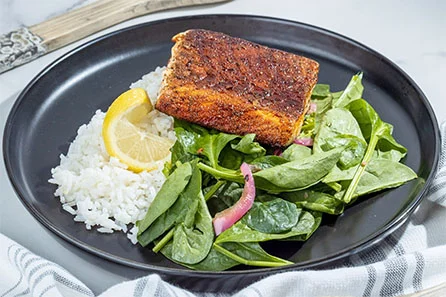Why Consistency Is the Secret Ingredient
You’ve probably heard it before — consistency beats perfection. When it comes to nutrition, that couldn’t be truer. A perfectly planned meal plan won’t do much if you only follow it for a week. But a plan you can actually stick with? That’s where long-term results come from.
Staying consistent with your meal plan helps you build better habits, regulate hunger, improve energy, and hit your goals, whether you’re aiming to lose fat, gain muscle, or just feel better overall.
The key isn’t being flawless. It’s showing up, one meal at a time.
Why Sticking to a Meal Plan Can Be Hard
Let’s be real. Life happens. Between work, family, social events, and random cravings, sticking to a plan every day can feel impossible.
Here are the most common reasons people fall off track:
Overly strict plans: Cutting out favorite foods or eating the same meals daily gets boring fast.
Lack of preparation: If healthy food isn’t ready, fast food becomes the fallback.
No flexibility: A plan that doesn’t adapt to real life won’t last.
All-or-nothing mindset: Missing one meal or snack shouldn’t mean giving up completely.
Once you understand these pitfalls, you can create solutions that actually fit your lifestyle, not fight against it.
1. Make It Realistic, Not Perfect
The first step to staying consistent is designing a meal plan that fits your daily routine.
Don’t plan for fancy dishes if you don’t have time to cook.
Include foods you enjoy — not just what’s “healthy.”
Allow room for flexibility: dinners out, celebrations, or that slice of pizza on Fridays.
The goal isn’t to eat perfectly; it’s to make progress you can sustain.
If you’re not sure where to start, our beginner guide Track Macros & Meal Prep: Beginner’s Guide to Success breaks down how to create a balanced plan without overcomplicating it.
2. Plan Ahead Like It’s an Appointment
Treat your meal prep time like a workout or work meeting — something non-negotiable.
Set aside a couple of hours each week for grocery shopping and prepping. You don’t need to make seven full meals; even prepping lunches and snacks can make a huge difference.
Use Sunday or Wednesday as prep days, or choose any day that fits your routine.
Pro tip: Keep a short list of your go-to meals that take under 30 minutes to make. Having a few “default” options saves time and reduces decision fatigue.
3. Keep a Routine, but Add Variety
Repetition is great for building habits, but boredom kills consistency.
Rotate proteins (chicken, salmon, tofu, ground turkey)
Switch up seasonings and sauces
Change sides (rice, quinoa, potatoes, pasta)
The structure stays the same, but flavors stay exciting.
You’ll look forward to your meals instead of feeling trapped by them.
4. Focus on Small Wins
It’s easy to get discouraged when results take time. Instead of aiming for perfection, track small victories:
You prepped meals for three days straight.
You resisted skipping lunch because you had food ready.
You hit your water goal this week.
Each small step builds momentum. The more you win — even in small ways — the easier it is to stay on track.
5. Hydration and Snacks: The Unsung Heroes
Staying consistent isn’t just about your main meals. Snacks and hydration matter too.
Keep healthy snacks nearby — nuts, protein bars, fruit, or yogurt.
Drink water throughout the day; dehydration often feels like hunger.
If you crave something sweet, pair it with protein to stay satisfied.
Having options ready means fewer chances to reach for junk food.
6. Find Accountability and Support
It’s much easier to stick to a meal plan when you’re not doing it alone.
Join a community or challenge group online.
Share your progress with a friend or workout buddy.
Use apps like MyFitnessPal or Cronometer to log meals and track progress.
External support helps you stay accountable — and motivated — even on days when you feel like quitting.
According to Every Day Health, people who plan and track their meals are far more likely to maintain healthy habits long-term.
7. Allow Flexibility (and Forgive Slip-Ups)
You’re human. Missing a meal, grabbing fast food, or indulging at a party doesn’t erase your progress.
Instead of quitting, just return to your plan at the next meal.
Consistency means you keep going, not that you never stumble.
Remember: Progress isn’t ruined by one off day, it’s built through hundreds of small, consistent choices.
8. Reassess and Adjust as You Go
Your meal plan should evolve as your goals, lifestyle, or schedule changes.
Check in every few weeks to ask yourself:
Does this plan still work for my schedule?
Am I getting enough variety and energy?
What can I prep faster or simplify?
Tweaking your plan regularly keeps it effective and realistic.
Trust the Process
Following these steps isn’t just practical — it’s backed by experts. Nutrition professionals emphasize that structure and self-awareness are key to maintaining healthy habits.
Resources like Precision Nutrition and Academy of Nutrition and Dietetics agree that flexible planning and consistent preparation lead to better long-term outcomes.
The more you understand your habits, the easier it becomes to stay on track without strict diets or guilt.










